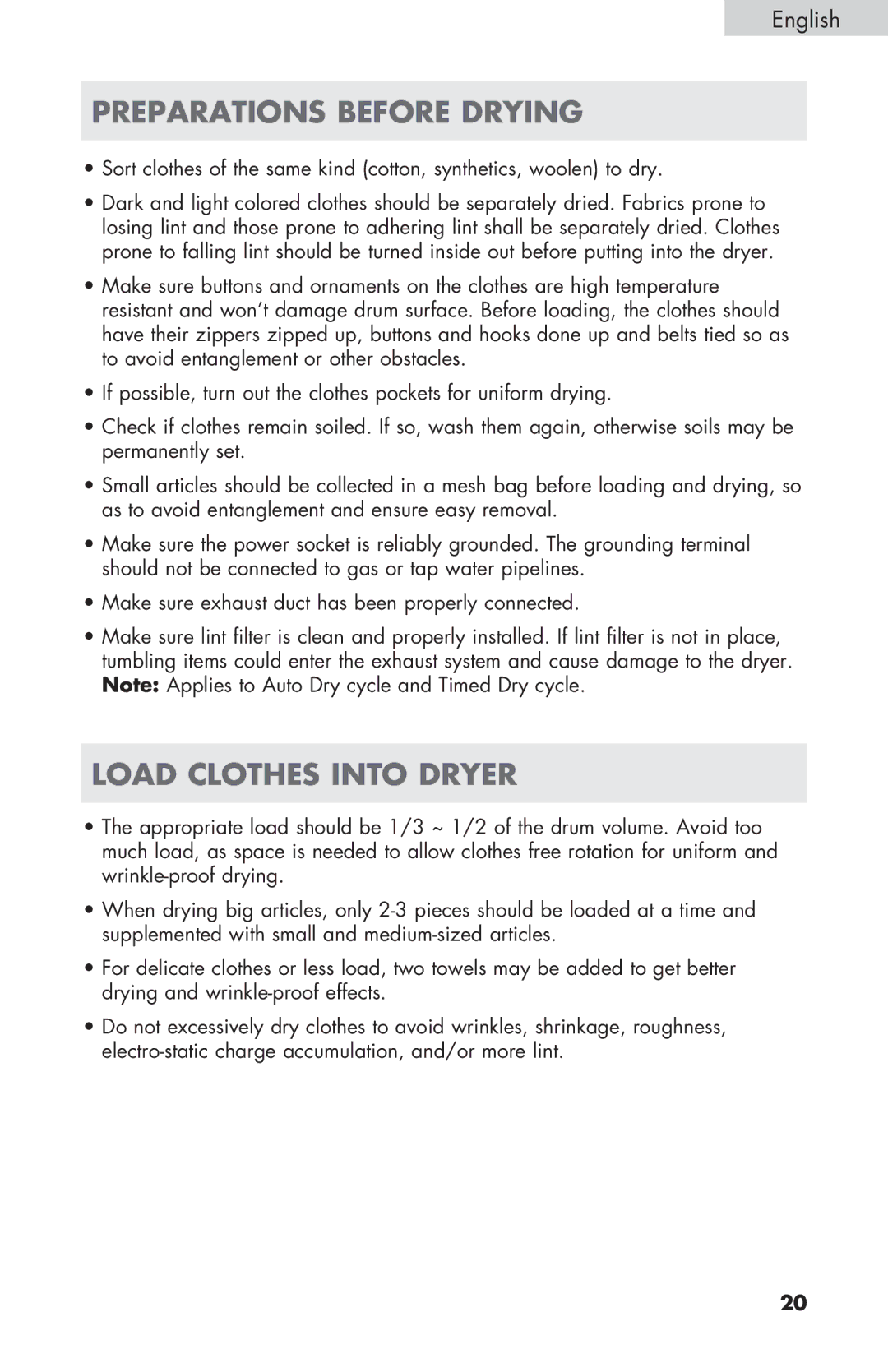
English
PREPARATIONS BEFORE DRYING
•Sort clothes of the same kind (cotton, synthetics, woolen) to dry.
•Dark and light colored clothes should be separately dried. Fabrics prone to losing lint and those prone to adhering lint shall be separately dried. Clothes prone to falling lint should be turned inside out before putting into the dryer.
•Make sure buttons and ornaments on the clothes are high temperature resistant and won’t damage drum surface. Before loading, the clothes should have their zippers zipped up, buttons and hooks done up and belts tied so as to avoid entanglement or other obstacles.
•If possible, turn out the clothes pockets for uniform drying.
•Check if clothes remain soiled. If so, wash them again, otherwise soils may be permanently set.
•Small articles should be collected in a mesh bag before loading and drying, so as to avoid entanglement and ensure easy removal.
•Make sure the power socket is reliably grounded. The grounding terminal should not be connected to gas or tap water pipelines.
•Make sure exhaust duct has been properly connected.
•Make sure lint filter is clean and properly installed. If lint filter is not in place, tumbling items could enter the exhaust system and cause damage to the dryer. Note: Applies to Auto Dry cycle and Timed Dry cycle.
LOAD CLOTHES INTO DRYER
•The appropriate load should be 1/3 ~ 1/2 of the drum volume. Avoid too much load, as space is needed to allow clothes free rotation for uniform and
•When drying big articles, only
•For delicate clothes or less load, two towels may be added to get better drying and
•Do not excessively dry clothes to avoid wrinkles, shrinkage, roughness,
20
